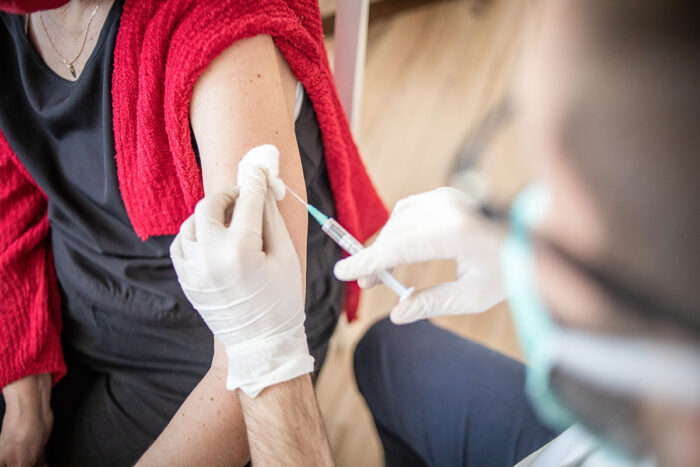Washington University participates in clinical trial of Moderna omicron booster
People who have received 2 or 3 doses of Moderna COVID-19 vaccine to be enrolled
 Getty Images
Getty ImagesWashington University School of Medicine in St. Louis is participating in a nationwide phase 2 clinical trial to evaluate whether an investigational omicron-specific booster of the Moderna COVID-19 vaccine is safe and capable of eliciting a strong immune response.
Washington University School of Medicine in St. Louis is participating in a nationwide phase 2 clinical trial to evaluate whether an investigational omicron-specific booster of the Moderna COVID-19 vaccine is safe and capable of eliciting a strong immune response.
The highly transmissible omicron variant emerged in November and rapidly spread around the world, causing a surge of cases and hospitalizations that have strained health-care systems. All of the COVID-19 vaccines and boosters currently in use are based on the original variant of SARS-CoV-2, the virus that causes COVID-19, but the omicron variant has dozens of mutations, and researchers and other experts are weighing whether boosters designed to target omicron may be necessary in the future.
Rachel Presti, MD, PhD, an associate professor of medicine and medical director of Washington University’s Infectious Diseases Clinical Research Unit, is the Washington University site leader for the clinical trial. Participants ages 18 and up who already have received the two-dose primary series of the Moderna COVID-19 vaccine, or the two-dose primary series of the Moderna COVID-19 vaccine and the currently authorized Moderna COVID-19 vaccine booster will be given the investigational omicron booster. Their immune responses will be monitored through blood samples.
“We are evaluating the investigational booster now so that we can learn about the safety profile and how the body’s immune system responds if an omicron-specific booster is needed in the future,” Presti said. “We are already working with Moderna to evaluate its beta- and delta-specific boosters in clinical trials, so this is an extension of that research to the most recent variant of concern.”







